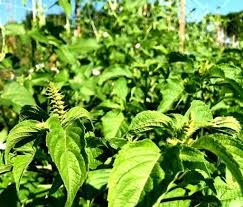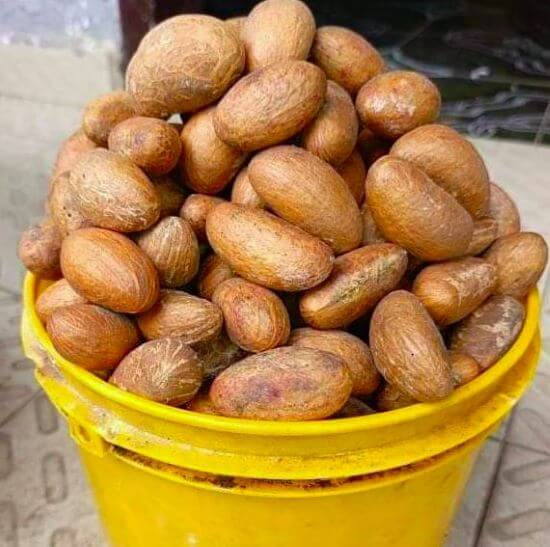Top 10 Immune-Boosting Herbs In Africa
- Collins k.k Boateng
- Aug 16
- 5 min read
Updated: Aug 17
Do you know why our great-grandparents lived healthily and enjoyed long lifespans? Is this generation neglecting a vital part of our cultural heritage? Why are people dying young these days? Why are we affected by various diseases and ailments?
Have we abandoned the kind of foods we consume or the medications we take? What is the cause of the recent increase in the various strange diseases and untimely deaths? The good book of the Christians says, “eat of the fruits and use the leaves to cure diseases and ailments”. Have we abandoned this command?
Every continent is blessed with unique natural healing powerhouses from plants, soil, water, and animals. Africa, in particular, is blessed with numerous natural benefits.
Across Africa, indigenous plants that have been cultivated and consumed for generations offer powerful immune support. Used by healers in cultural rituals and homes for daily wellness, today science is finally validating what tradition long knew: these herbs bolster immunity, reduce inflammation, and help combat infections.
This guide dives into the top 10 African immune-boosting herbs, blending scientific evidence with ancestral wisdom. If we are ready, then here we go:
Top Immune-Boosting Herbs

When you love natural stuff, you tend to directly benefit from its usage.
Herbs and plants are natural gifts from the creator that we greatly benefit from.
Our great-grandfathers knew this and used it to their advantage. Some traditional people of today are also benefiting greatly from herbs. Below are the top immune-boosting herbs for your well-being.
Moringa (Moringa oleifera)

Moringa is known for its extraordinary nutrient density and therapeutic benefits. Its leaves and seeds are loaded with vitamins A, C, E, iron, and protein.
Multiple studies confirm its antioxidant, anti-inflammatory, antimicrobial, antiviral, hepatoprotective, and immunomodulatory actions.
It has shown promise against viruses such as HIV, influenza A, herpes simplex, hepatitis B, and coronaviruses.
In one trial, moringa extracts increased white blood cell count by up to 40%, reinforcing its immune-enhancing profile.
Moringa Usage: You can add the leaf powder in smoothies, herbal teas, and soups; capsules; and fresh leaves in stews.
The next super immune-boosting herb is:
Ginger (Zingiber officinale)

Widely used across Africa for respiratory infections, sore throats, cough, and systemic inflammation.
Contains bioactives like 6-gingerol, which offer antiviral, antioxidant, and anti-inflammatory properties—shown in lab tests to inhibit influenza, rhinovirus, herpes, RSV, SARS‑CoV‑1, and more.
Ginger Usage: Ginger tea, infusions, added to stews, or raw grated slices with honey or lemon.
Guess the next super immune-boosting herb. It is:
Neem (Azadirachta indica)

Indigenous in African and South Asian traditional medicine for its blood-purifying, antimicrobial, and immune-stimulating effects.
Neem contains compounds like nimbidin and gedunin, with documented antiviral and antibacterial actions.
Neem Usage: Neem leaf tea, tinctures, topical neem oil, or dried powder in remedies.
Scent Leaf (African Basil, Ocimum gratissimum)

Scent Leaf is known locally as Nchanwu, rich in flavonoids with antioxidant, antibacterial, and anti-inflammatory effects. Scent leaf is used for treating coughs, fever, and digestive discomfort, especially in Nigerian and West African households.
Scent Leaf Usage: Brewed as tea, added to pepper soup or stews, or sautéed with other herbs.
Baobab (Adansonia digitata)

Baobab, referred to as the “Tree of Life,” its fruit pulp that is one of the richest natural sources of vitamin C, essential for immune function.
Offers soluble fiber and antioxidants that support gut health and reduce inflammation.
Baobab Usage: Baobab powder in smoothies, porridge, or beverages; fresh fruit pulp where available.
Rooibos (Aspalathus linearis)

Rooibos is commonly found in South Africa. It is a caffeine-free herbal tea packed with aspalathin, quercetin, and other flavonoids, enhancing immune cell activation and antioxidant defense.
Promotes macrophage activity and the production of antibodies, critical for pathogen elimination.
Rooibos Usage: Daily hot or cold rooibos tea; can be flavored with honey, lemon, or ginger.
African Potato (Hypoxis hemerocallidea)

What is an African potato? It is also a powerful immune-boosting herb that is commonly found in South Africa. It is scientifically called Hypoxis hemerocallidea.
It is used traditionally in southern Africa to strengthen immunity and treat infections. Emerging studies support its immune-stimulating and anti-inflammatory potential.
African Potato Usage: Decoction from root tubers, or available as standardized extracts.
Devil’s Claw (Harpagophytum procumbens)
Devil’s Claw is scientifically known as Harpagophytum procumbens. It is best known for treating arthritis and musculoskeletal inflammation; its anti-inflammatory actions indirectly support immunity.
Devil’s Claw Usage: Tincture, tea infusion, or as standardized supplement extracts.
Cleome (Cleome gynandra)
Cleome is scientifically called Cleome gynandra. It is commonly eaten as leafy greens in Kenya, Tanzania, and Uganda.
Cleome is rich in antioxidants and is used for treating infections, pain, and inflammation.
Cleome Usage: Consume Cleome Cooked leaves in stews or use dried and powdered leaves for teas and herbal preparations.
Artemisia afra (African Wormwood)
African Wormwood has long been used across Southern and Eastern Africa to treat colds, congestion, malaria, and infection.
Its essential oils and sesquiterpene lactones contribute to antimicrobial, anti-inflammatory, and immune-stimulating effects.
Artemisia afra Usage: Herbal infusion from fresh leaves steeped in hot water, often with honey.
Herbal Immune Toolkit: How to Use These Herbs Safely
Knowing the immune-boosting herbs is not enough. How and when to use them is very crucial.
Below is how you can use the immune-boosting herbs above for healthy living:
Alternate Herbs: You need to rotate herbs evenly for greater success. For moringa one day, ginger another—to avoid tolerance and interact differently with your immune system.
Preparation Tips: Steeps are stronger than cooked versions, ideal for antiviral or immune support effects.
Food Pairings: Pair vitamin-rich herbs (baobab, moringa) with zinc-rich foods to maximize immune support.
Precautions
Avoid high doses during pregnancy without medical supervision (e.g., neem, artemisia).
Certain herbs (e.g., neem) can interact with medications—seek professional advice if taking blood thinners or immunosuppressants.
Frequently Asked Questions
Are these herbs safe to use daily?
Yes. Most are safe in moderate culinary or infusion doses. Some (like neem, artemisia) should be used under guidance for long-term medicinal use.
Can kids and pregnant women take them?
Children can take reduced dosages (½ the adult dose), but herbs like neem and artemisia are not recommended during pregnancy unless supervised.
How long before you notice immune effects?
Some effects, such as energy boost, digestion, and mild immunity, can be felt within days. Stronger results (e.g., reduced infection rate) may take weeks of consistent use.
Final Thoughts
If your immune system is failing you, if you frequently get affected by free radicals, worry no more.
These powerful herbs can help boost your immunity for good health.
They offer a powerful, holistic approach to supporting the immune system, with deep cultural roots and growing scientific validation.
From the vitamin-rich moringa and baobab to traditional warriors like neem, ginger, and artemisia, integrating these plants into your lifestyle, whether as teas, powders, or tinctures, can reinforce your body’s natural defenses.



Comments